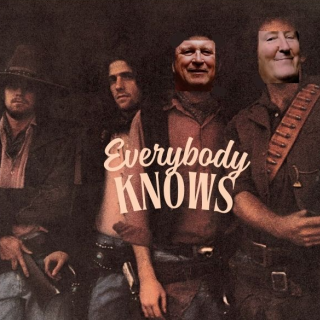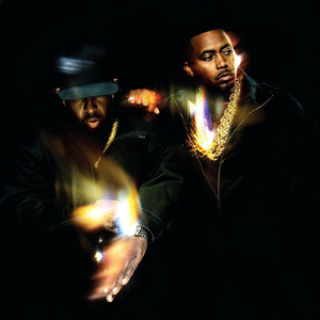Advertisement
Hey everyone, David Bromberg has a new CD out. It’s called “The Blues, the Whole Blues, and Nothing but the Blues.” Do you think you’ll be able to appreciate it properly? Do you have a proper blues education?
Oh yeah, education. That’s how I was introduced to the blues; something you were expected to learn about if you wanted to know music. Like algebra or The Great Gatsby. Learn about it, respect it and insist that others do the same, because it is self-evidently great. When I was in high school, all of us wanted to play guitar like Pantera’s Dimebag Darrell or Sepultura’s Max Cavalera. But we all professed to be huge BB King and Eric Clapton fans, although their recordings secretly made us squirm with boredom. To say otherwise would show a lack of respect to the elders, the depressing but mystical spawning pool of Rock ’n Roll.
In college it just got worse —to be considered cool it was no longer adequate to be bored by Clapton, now you had to go back to the source and be bored by the grainy recordings of the original bluesmen like Charley Patton and Blind Willie McTell. But I was supposed to appreciate it, so I appreciated it, and even (maybe) indulged in a little frat boy riffing on bragging songs like Muddy Waters’ “I’m a Man” and John Lee Hooker’s “I’m Bad like Jesse James.”
And then one day I was listening to a recording of tribute concert to Chicago folk singer Steve Goodman, and happened upon a track called “Will Not Be Your Fool.” Starting out like a typical Chicago blues, the lyrics became odder and odder until the song devolved into an unhinged rant that sounded like a mean drunk eating her way through a thesaurus. Holy shit, I thought, what the hell is this?
THIS was David Bromberg, the blues folk party band court jester, guitar teacher, rare violin appraiser, weirdo and all around badass. I picked up one of his albums, and then I picked up every one I could find. In addition to his excellent absurdist originals, Bromberg's recordings were a treasure trove of cover songs, a veritable encyclopedia of the excellence of music past. Bromberg turned me on to everything from the beauty of “Come All Ye Fair and Tender Maidens” to the ultra-cool songs of Lieber and Stoller.
But mostly he turned me on to the blues. The defiance of “Send Me to the ‘Lectric Chair,” the absurdity of Vaudeville nonsense like Lil McLintock’s “Furniture Man” mashed up with Dick Justice’s “Cocaine Blues,” and faithful renditions of songs like Robert Johnson’s “Kind Hearted Woman” (albeit with a new verse about earthquakes).
And so I start to catch on – the blues isn’t a museum exhibit or a sociologist’s dissertation. It’s a big ball of happy and sad and fun and misery and party and loss and all the rest. And with that perspective you can go back to the source and actually get it this time. McTell’s “Dyin’ Crapshooter’s Blues” is hysterically funny. For all the darkness of songs like Patton’s “High Sheriff’s Blues” and Johnson’s “Hellhound on my Trail,” both of them were perfectly capable of smirking out double entendres. Big Joe Turner was positively filthy. This was music to be loved and enjoyed.
Or as Bromberg says, “[t]here’s only two songs — the Star Spangled Banner and the blues.”
But I’m supposed to be reviewing, not just gushing for 800 words. The CD is 13 tracks of blues, most of which are covers and many of which ruminate on an unfaithful lover. Bromberg’s stock character is that of a slightly persecuted hipster wandering through a metaphorical (and at times actual) amusement park, and his response to his lover’s infidelity range from befuddlement (“How Come My Dog Don’t Bark When You Come Round”) to annoyed incredulity (“The Blues, the Whole Blues, and Nothing but the Blues”).
Bromberg can be very, very funny. To be clear, though, he has serious guitar and fiddle chops, and his bands are always second to none. It’s his ability to do a masterful straight take that earns him the privilege of the ridiculous.
In addition to what can only be described as screwing around (“How Come People Act Like That?” and “You Don’t Have to Go”), the album has a healthy dose of the deadly serious (“A Fool for You” and “Delia”). His version of Ben Harney’s song “You’ve Been a Good Old Wagon,” which was made famous by Bessie Smith, has it all: a ridiculous spoken intro wherein Bromberg gets his hand smacked for stealing candy, a great vocal and a horn arrangement so good I hope they play it at my funeral.
The CD is fun, accessible, dark, and awesome. And OK, it’s probably educational too.
Thoughts and constructive criticism can be sent to edwardrforman@yahoo.com



